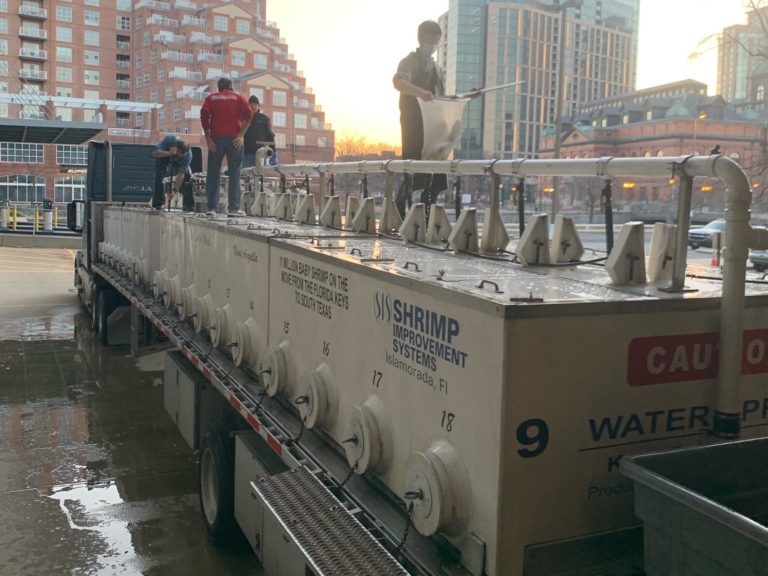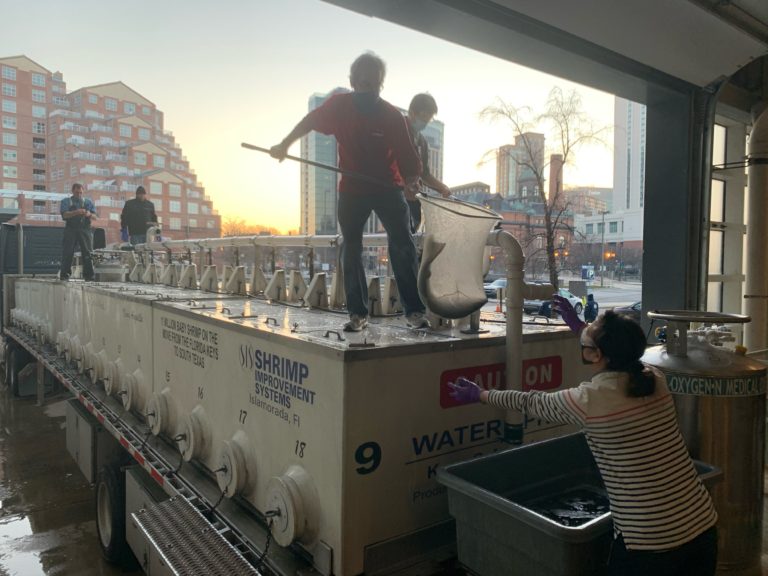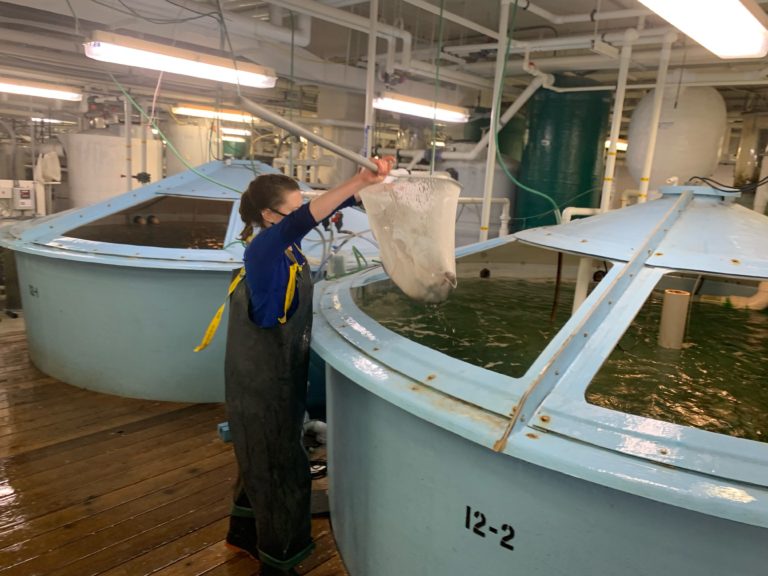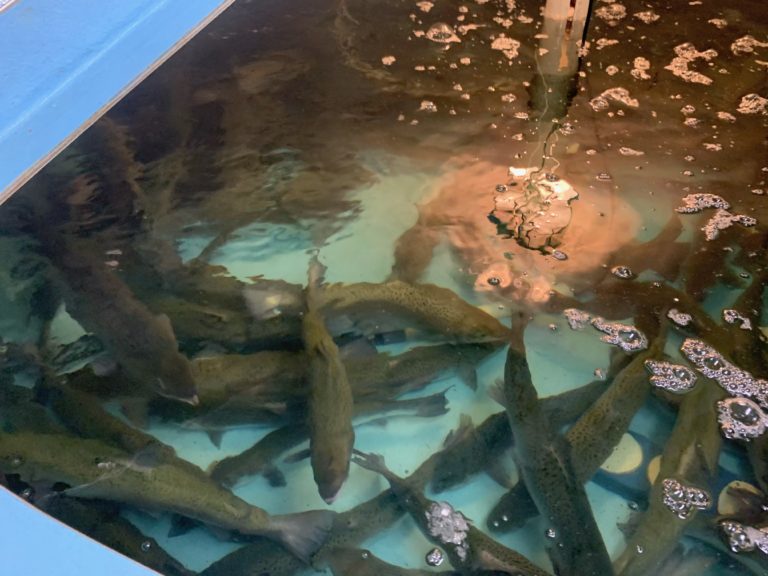Submitted by Dr. Yonathan Zohar
One of RAS-N’s main objectives is to identify and prioritize biological and technological challenges to the development of Atlantic salmon RAS in the US. Our collective network has agreed that one of these barriers is off-flavor, which is often detected in RAS-produced salmon. As a result, discussions between RAS-N members and a water technology company have led to the beginning of a collaborative research partnership designed to study and optimize innovative approaches to off-flavor mitigation. Currently, harvest-size fish are purged (depurated) of off-flavor caused by bacterial compounds (geosmin and 2-methylisoborneol, aka MIB) by flushing them with large volumes of water for 7-14 days prior to harvest. During this time, fish are not fed, leading to weight loss, and effluent water from the purge tanks is discharged, which often creates significant environmental concerns. RAS-N partners in Maine (USDA-NCWMAC) and Maryland (IMET and AquaCon) joined forces in a collaboration with Exciton Clean, LLC, a Wisconsin company, to study the efficiency of Exciton’s Advanced Oxidation Process (eAOP) reactors in removing geosmin and MIB from tank water, which, if successful, could result in the shortening of the purging process or potentially eliminating it altogether.
NCWMAC agreed to provide harvest-size Atlantic salmon for the study. Earlier this year, an 18-wheeler owned by Holland Seafood Transportation loaded over 450 3.5-4.5 kg salmon at NCWMAC and drove them to the University of Maryland IMET in Baltimore (see photos below).




Upon arrival, fish were transferred to IMET’s Aquaculture Research Center (ARC) and stocked in two tanks of 12 cubic meters volume. AquaCon, Exciton and IMET are currently finalizing the experimental protocols for trials at IMET/ARC to test the ability of the eAOP reactors to reduce levels of geosmins and MIBs from tank water and fish flesh. The objective is to simulate at ARC the purging conditions that will be used at the large-scale AquaCon facility, thereby enabling our data and recommendations to be implemented at the commercial operation. Because AquaCon plans to grow their fish to harvest in saltwater, we will start by studying the eAOP system efficiency at the AquaCon salinity. This collaborative project demonstrates the value of RAS-N towards developing and implementing R&D strategies to overcome impediments and “enable capacity” for the US Atlantic salmon RAS industry.